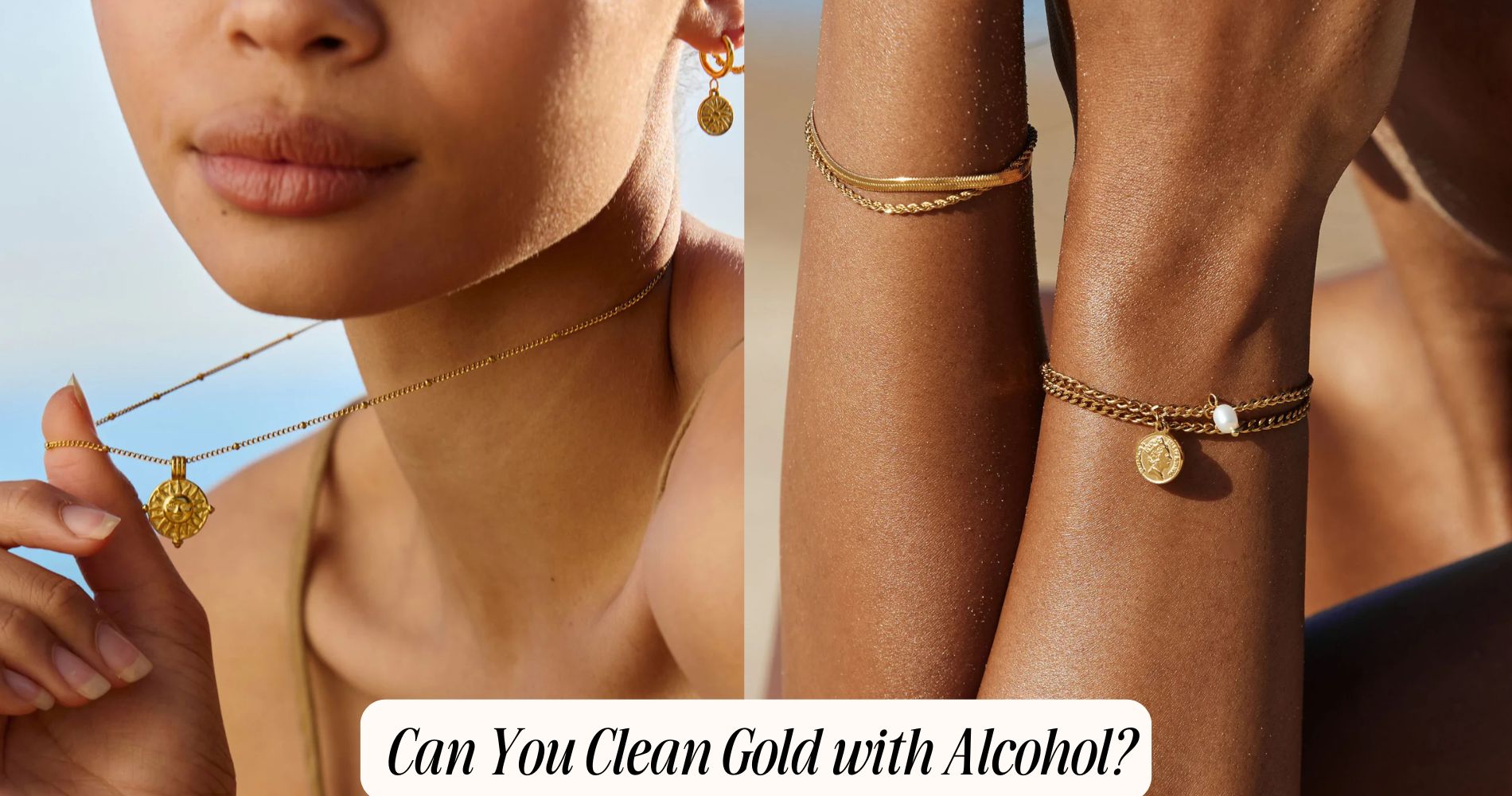
Can You Clean Gold With Alcohol?
Wondering, can you clean gold with alcohol? Yes, you can! Alcohol is an effective cleaner for gold, quickly dissolving dirt and oils without damaging the metal. Since it evaporates rapidly, alcohol minimizes moisture exposure, helping to prevent scratches. However, frequent use may dull the gold’s luster over time, especially on intricate pieces or those with gemstones. For lasting shine, consider gentler alternatives like warm soapy water or specialized cleaning solutions. Understanding gold's properties and proper cleaning methods will help keep your jewelry looking its best. For durable options, check out our waterproof jewelry collection.
Understanding Gold Composition
When it comes to understanding gold composition, it's essential to recognize that not all gold is created equal. You'll encounter various gold alloys, which are mixtures of gold with other metals. These alloys can greatly impact the properties and appearance of gold jewelry and items.
The purity levels of gold are typically measured in karats, with 24-karat gold being the purest form, containing 99.9% gold. However, 18-karat gold contains 75% gold and 25% other metals, such as copper or silver, which can enhance durability and alter color.
When purchasing gold, be aware that lower purity levels may not only affect the item's value but also its susceptibility to tarnish and damage. For example, 10-karat gold, with only 41.7% gold content, is more prone to wear and discoloration than higher karat options.
Understanding these distinctions helps you make informed decisions about your gold jewelry, especially regarding care and cleaning. Knowing the composition allows you to choose appropriate cleaning methods, ensuring you maintain the beauty of your gold items without compromising their integrity.
Alcohol's Cleaning Properties
Alcohol serves as an effective cleaning agent due to its ability to dissolve oils, dirt, and grime without leaving behind residue. When you use alcohol as a cleaning solution, you're tapping into its powerful solvent properties. It can penetrate and break down organic materials, making it particularly useful for removing sticky residues that other cleaners might struggle with.
One of the standout features of alcohol is its disinfecting properties. It effectively kills bacteria and viruses, making it a popular choice in both household and medical settings. When applied, it evaporates quickly, which not only speeds up the cleaning process but also reduces the likelihood of moisture damage, especially on delicate surfaces like gold.
In addition, alcohol-based cleaning solutions can effectively sanitize and refresh items without the risk of corrosion that some harsher chemicals might pose. This makes it a versatile option for maintaining the shine and integrity of your gold jewelry or accessories.
Pros of Using Alcohol
Using alcohol as a cleaning agent offers several advantages that make it particularly appealing for maintaining gold items. First, alcohol is highly effective at removing dirt, oils, and grime without causing damage to the metal. When you consider the effectiveness comparison with other cleaning agents, alcohol often stands out due to its quick evaporation and powerful solvent properties. This means you can achieve a thorough clean without extensive scrubbing, which can scratch or dull the surface of your gold.
Moreover, alcohol typically leaves minimal residue, alleviating residue concerns that might arise from using soap or other chemical cleaners. This quality guarantees that your gold items retain their luster and shine after cleaning. You'll find that a quick wipe with alcohol can restore the brilliance of your jewelry, making it look as good as new.
Additionally, alcohol is readily available and affordable, making it a practical choice for regular maintenance. Its versatility allows you to use it on various types of gold items, from jewelry to decorative pieces, with confidence.
Cons of Using Alcohol
While alcohol can be an effective cleaner for gold, there are some notable drawbacks to contemplate. One major concern is the possibility of alcohol residue. If not thoroughly rinsed, this residue can dull the luster of your gold, leaving it looking less than its best. You might think a quick wipe-down is sufficient, but even small amounts of residue can accumulate and affect the appearance over time.
Moreover, using alcohol can lead to potential damage, particularly if your gold jewelry contains gemstones or intricate designs. Alcohol may weaken the adhesives used to secure stones, causing them to loosen or even fall out. The harsh nature of alcohol can also strip away protective coatings on some pieces, leaving them vulnerable to scratches and tarnish.
Lastly, regular cleaning with alcohol may not be suitable for all types of gold. Some gold alloys are more reactive to alcohol than others, which could result in discoloration or corrosion. Consequently, while alcohol might seem like a quick fix, the potential downsides warrant careful consideration before you decide to use it on your precious gold items.
Recommended Cleaning Methods
When it comes to cleaning gold, several effective methods can guarantee your jewelry retains its shine without risking damage.
One of the most popular cleaning solutions is warm soapy water. Mix a few drops of mild dish soap with warm water, soak your gold jewelry for about 15-20 minutes, and gently scrub it with a soft toothbrush. This method is particularly beneficial for gold pieces that have intricate designs, as it can reach nooks and crannies easily.
Another effective method involves using a specialized gold cleaning solution. Many jewelry stores offer products specifically formulated for gold maintenance, which can help remove tarnish and restore luster without causing harm. Always follow the manufacturer's instructions for the best results.
For a quick clean, a microfiber cloth can work wonders. Simply buff your gold jewelry to remove surface dirt and oils. This method is ideal for regular maintenance, keeping your pieces looking pristine between deeper cleanings.
How to Clean Gold Safely
Cleaning gold safely requires a careful approach to avoid damaging your cherished pieces. Start by examining your jewelry for any loose stones or intricate details. If you notice any issues, consult a professional jeweler before proceeding.
For routine gold care, create a gentle cleaning solution using warm water and a few drops of mild dish soap. Avoid harsh chemicals or abrasive cleaners that can tarnish or scratch the surface.
Once your solution is ready, soak your gold jewelry for about 15 minutes. This will help loosen dirt and grime without causing harm. After soaking, use a soft-bristled toothbrush to gently scrub the item, paying special attention to crevices where dirt tends to accumulate.
Rinse thoroughly under lukewarm water to remove any soap residue. Dry your jewelry with a clean, soft cloth. Avoid paper towels, as they can scratch the gold.
For ideal jewelry maintenance, store your pieces in a dry, fabric-lined box to prevent scratches and tarnishing. Regular cleaning and proper storage will keep your gold looking brilliant while ensuring its longevity.
Tips for Maintaining Gold Jewelry
To keep your gold jewelry in top condition, regular maintenance is key. Start by cleaning your pieces routinely to remove dirt and oils that accumulate over time. Use a gentle soap solution and a soft toothbrush for detailed cleaning. Avoid harsh chemicals that can damage the gold's surface.
Storage plays an essential role in gold care. Store your jewelry in a soft-lined box or a separate pouch to prevent scratches and tangling. If you wear your gold jewelry daily, consider removing it before engaging in activities that could cause damage, such as exercising or swimming.
Inspect your jewelry regularly for signs of wear, such as loose stones or broken clasps. Early detection can save you from costly repairs later on. For more intricate pieces, it's wise to seek professional jewelry maintenance at least once a year.
Lastly, be mindful of how you handle your jewelry. Avoid exposing it to harsh environments or chemicals, such as those found in swimming pools or cleaning products.
Frequently Asked Questions
Can Alcohol Damage Gemstones Set in Gold Jewelry?
Alcohol can potentially damage certain gemstones, affecting their luster and clarity. When practicing gemstone care during jewelry maintenance, it's best to avoid alcohol and opt for safer cleaning methods to preserve your jewelry's beauty.
Is Rubbing Alcohol Effective for Cleaning Gold-Plated Items?
Rubbing alcohol can be effective for cleaning gold-plated items, but be cautious. Alcohol may degrade gold plating over time. Consider gentler cleaning methods, like mild soap and water, to preserve your jewelry's appearance.
How Often Should I Clean My Gold Jewelry With Alcohol?
You should clean your gold jewelry every few weeks for ideal jewelry maintenance. This cleaning frequency helps prevent buildup and keeps your pieces looking vibrant. Regular attention guarantees your jewelry remains in excellent condition over time.
Can Alcohol Remove Tarnish From Gold?
Alcohol isn't effective for tarnish removal from gold. Instead, focus on proper gold care by using a gentle soap solution and a soft cloth. This method preserves your jewelry's shine and prevents damage during cleaning.
What Should I Do if My Gold Turns Dull After Cleaning?
If your gold turns dull after cleaning, consider effective dull restoration methods. Evaluate your cleaning methods; avoid harsh chemicals. Instead, use a gentle soap and water solution, then polish with a soft cloth for shine.
Conclusion
In summary, while alcohol can effectively clean gold due to its solvent properties, it's crucial to take into account the potential risks. Alcohol may not be suitable for all gold compositions, especially those with delicate gemstones or finishes. For best results, stick to recommended cleaning methods tailored to your specific piece. By applying the right techniques and maintaining your jewelry properly, you can guarantee your gold remains brilliant and intact for years to come.












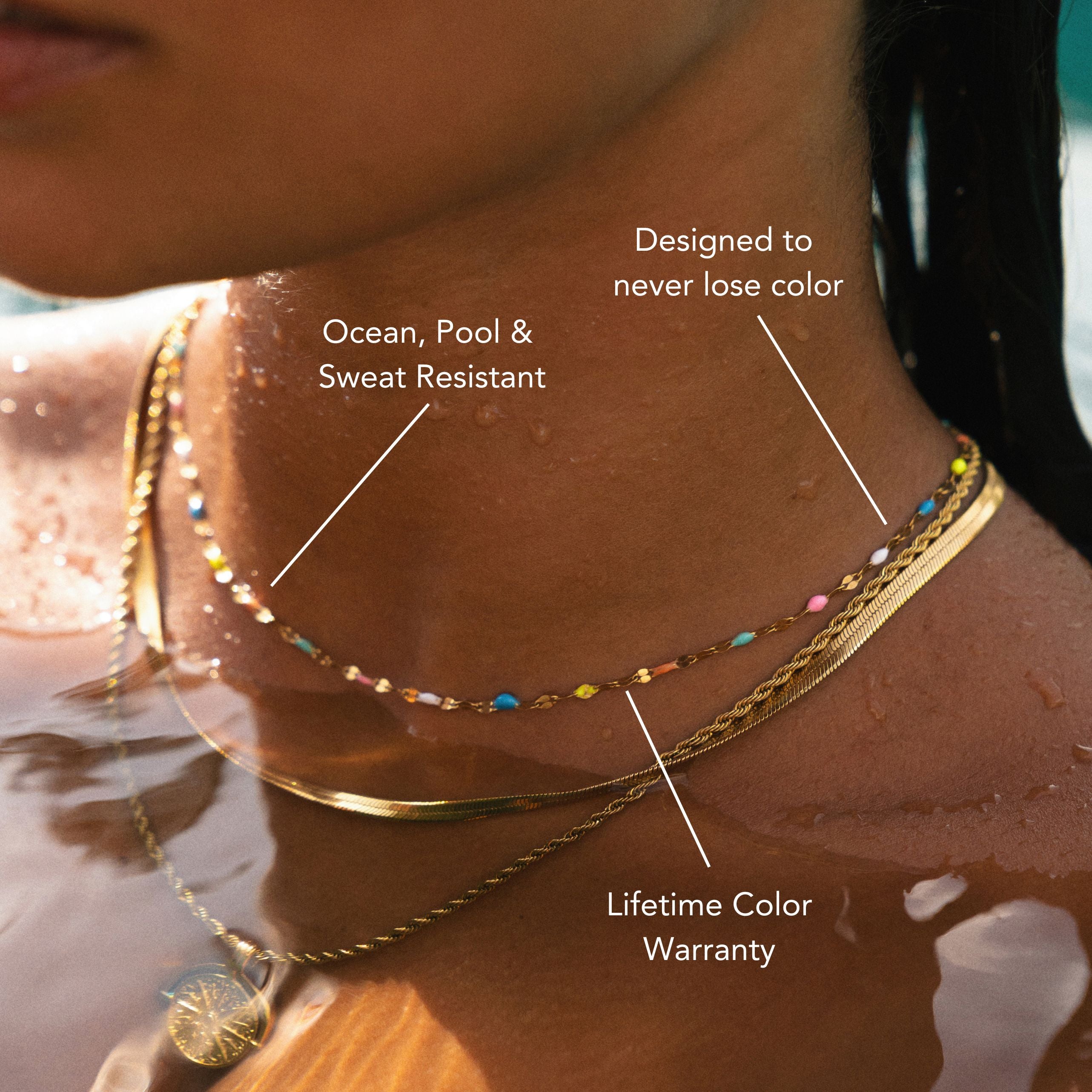
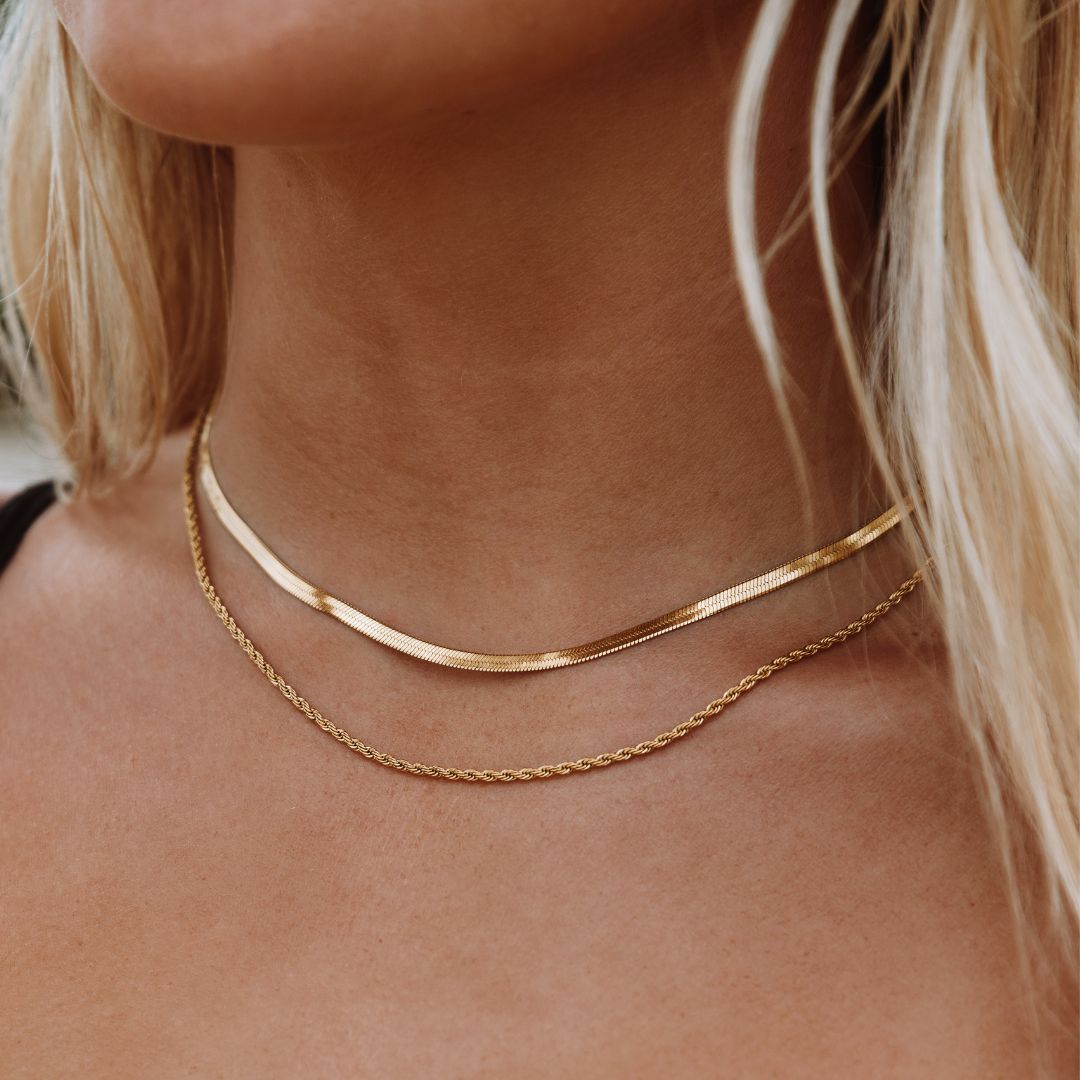



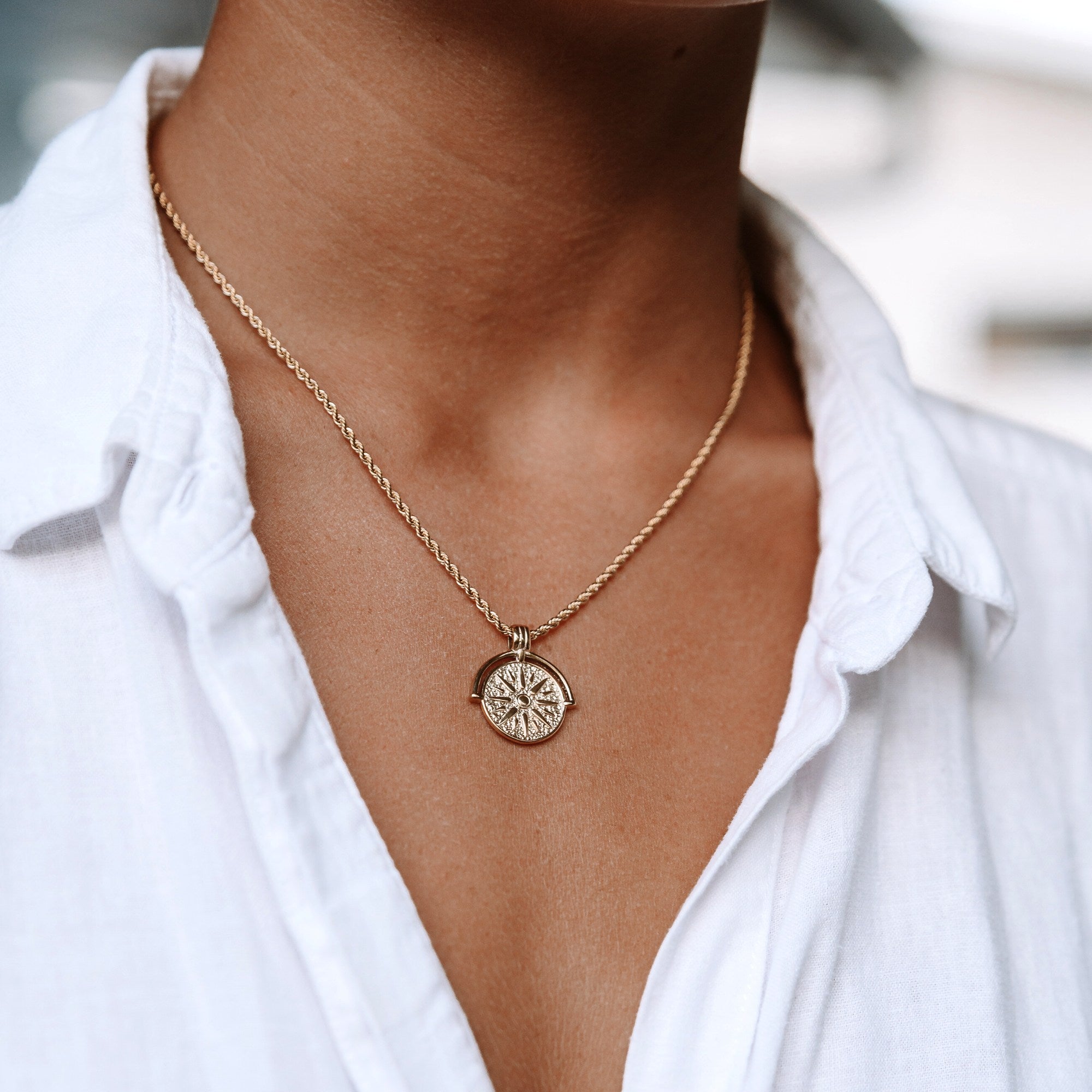

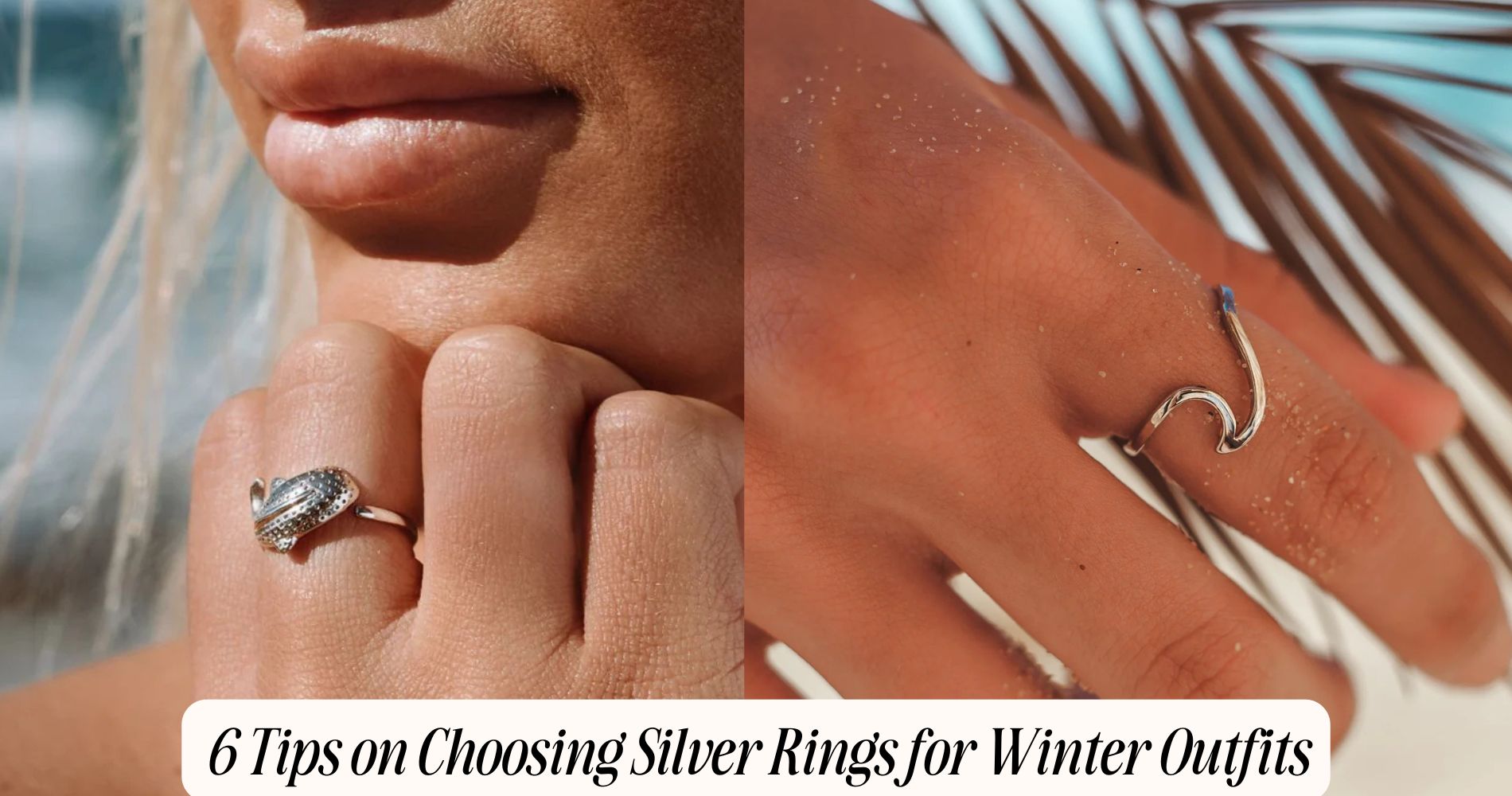





Leave a comment
This site is protected by hCaptcha and the hCaptcha Privacy Policy and Terms of Service apply.